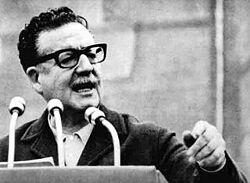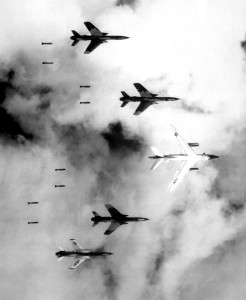The United States like to proclaim themselves the Leader of the Free World. And calling the United States a leading country is certainly justified. It is the last remaining superpower, it boasts the world’s largest economy, it is the richest country on earth with the world’s strongest military force and many of the world’s leading educational and research facilities as well as multinational corporations call the United States their home. In many respects the power of the United States is unrivaled which seems to establish the country as a natural leader of nations.
the last remaining superpower, it boasts the world’s largest economy, it is the richest country on earth with the world’s strongest military force and many of the world’s leading educational and research facilities as well as multinational corporations call the United States their home. In many respects the power of the United States is unrivaled which seems to establish the country as a natural leader of nations.
But good leadership of individuals and nations alike requires qualities that are a rare combination; Competence, prudence, farsightedness and the ability to show restraint, inspire and lead by example and some would argue a sense for the common good. Do these qualities accurately describe the track record of the United States? It is hard to argue.
It is particularly hard to argue that the United States have, as so often publicly proclaimed, been preoccupied with spreading freedom, justice, democracy and prosperity around the globe – all of which might have seemed like a worthwhile pursuit for the Leader of the Free World. The actions taken and the military interventions conducted over the course of the last one hundred years, however, much rather paint a picture of a country preoccupied with defending its economic interests and ideological and military supremacy. Humanitarian aspects were without exception at best a secondary concern for the men shaping US’ foreign policy.
The United States repeatedly intervened in the affairs of sovereign nations, toppled their leaders and installed repressive regimes to guarantee favorable conditions for its business interests. Iran’s Mossaddegh in 1953, Guatemala’s President Jacobo Arbenz in 1954, Joao Goulart in Brazil in 1964 and Chile’s Salvador Allende in 1973 are only four examples. Prior to toppling leaders the US policy of choice had been military invasions and occupations. Central American countries were the principal recipients of that kind of treatment. In the first 25 years of the 20th century the United States initiated over 20 such invasions or occupations in which would later be called the “Banana Wars”. The financial interests of the United Fruit Company were the overt driver of these military endeavors.
The results of the outlined American policies were hundreds of thousands injured, tortured and dead civilians and soldiers in over a dozen countries in the Americas alone. The countries in question remained in abject poverty with obscene disparities of wealth and populaces suppressed by American-friendly dictators for decades. United States business interest profited greatly.
In Asia American concerns were centering around military and ideological supremacy rather than pure economic goals. The outcome of American intervention from the 1950s onward, however, was as devastating as they were in the Americas if not more so. And while one could argue for Central America and the West Indies to be in the direct vicinity of the United States, the same argument certainly didn’t apply in Southeast Asia.
Under the guise of resisting communist aggression Vietnam, Laos, and Cambodia were flattened by American bombs killing millions and destabilizing the region as a whole between the late 50s and early 70s. In Cambodia the bombings tore apart the very fabric of society. It gave rise to the Khmer Rouge, one of the most brutal regimes in history that within 4 years killed almost a quarter of its own people.
In the Middle East the US betrayed its pretensions to spread democracy by backing any dictator or autocratic regime as long as it would support US oil related interests. It destabilized the region by arming both sides of the in First Persian Gulf War in the 80s and subsequently waged two wars against Iraq that devastated the country and left the region in turmoil. While hundreds of thousands of Iraqis died US military, security and oil companies like Blackwater and Halliburton made billions.
Proponents of American interventionism and world leadership can point at Germany and Japan as the two shining examples of countries that made a marvelous recovery not in small part due to American investment flowing into both countries after their destruction and defeat in World War II.
For the most part, however, the United States military interventions left countries and whole regions devastated, many did never recover. Central America is still an impoverished region, Southeast Asia does fare little better, the Middle East has been brutalized beyond recognition and living conditions are among the most deplorable in the world.
What does this track record say about the United States? What does it say about a country if it is willing to accept the continued suffering and deaths of hundreds of thousands to guarantee stable profits for its economic interests or to simply make a point in an ideological struggle? What does it say about a nation if it continuously sacrifices its self-proclaimed greatest values to make a buck? What does it say about a country if it has to lie about its motives and falsify facts to convince even its allies of its course being rightful? What does it say about a nation if it manufactures evidence and crisis to arbitrarily exercise force and bully smaller nations into submission? What does it say about the US that is waged more wars in the last 100 years than any other nation?
 The military endeavors of the US have helped make it the wealthiest nation on earth and guaranteed profits for its business interest creating some of the mightiest corporations worldwide. For the nations subject to US military campaigns, however, very few will see them as crusades for freedom, justice and democracy and for most of them these values failed to materialize as a result of US intervention.
The military endeavors of the US have helped make it the wealthiest nation on earth and guaranteed profits for its business interest creating some of the mightiest corporations worldwide. For the nations subject to US military campaigns, however, very few will see them as crusades for freedom, justice and democracy and for most of them these values failed to materialize as a result of US intervention.
The US exercise of its leadership or – as some would call it – arbitrary meddling in the affairs of sovereign nations did not bring about peace, progress or prosperity and it is not designed to do so. It is not an expression of largesse but of narrow self-interest to uphold economic and military superiority. The United States leads the world by superiority of force not superiority of ideas.
Looking at the United States’ track record of global leadership one has to ask: Is this the leadership the world wants? Will this kind of leadership help the world progress to a better place in the future? It is hard to argue.


